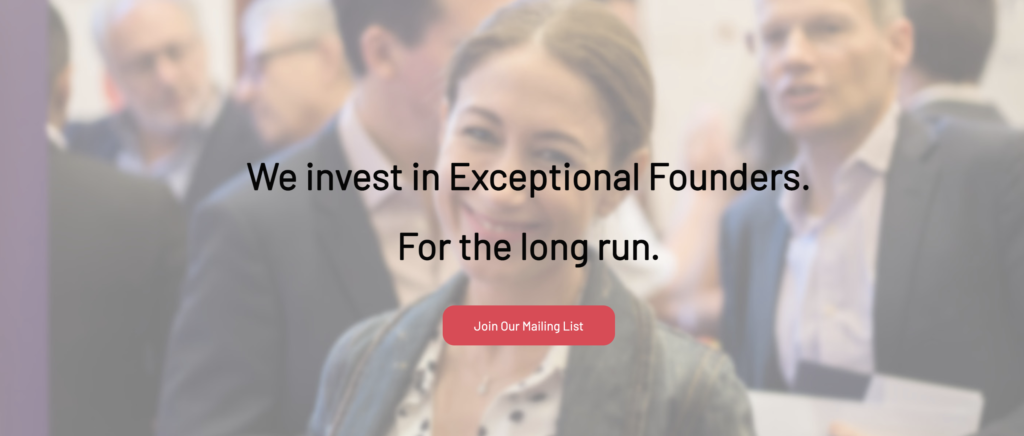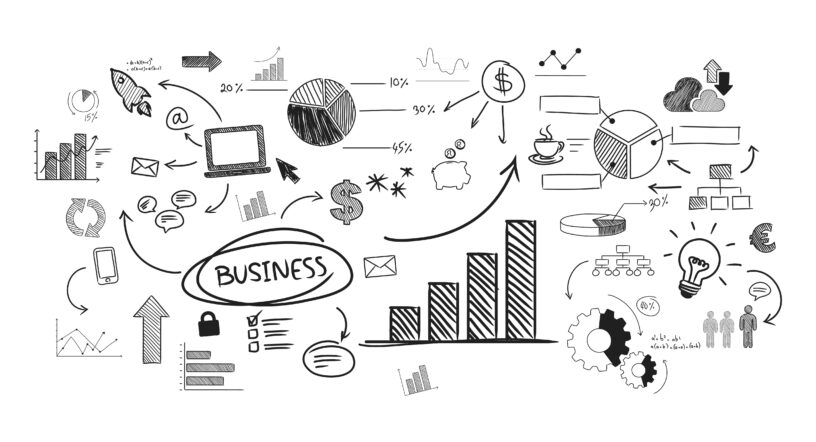Your startup needs funding, but you’re not quite sure where to turn. There are so many options out there, and it can be tough to decide which one is right for you. You’ve heard of accelerators and pre-accelerators, but you’re not quite sure what they are or how they work. Let’s take a closer look at accelerators and pre-accelerators to see if they might be a good fit for your startup funding needs.
What is an Accelerator?
An accelerator is a program that helps startups grow their businesses. They typically last 3-6 months and provide mentorship, resources, and connections in exchange for equity. Some well-known accelerators include Y Combinator and Techstars.
What is a Pre Accelerator?
A pre-accelerator is similar to an accelerator, but it is shorter in duration and does not typically involve giving up equity. Pre-accelerators can last anywhere from 4 weeks to 6 months, and they often help startups with things like customer validation, business model development and refining their pitch. One well-known pre-accelerator is StartX.
Advantages of an Accelerator
There are several advantages to participating in an accelerator program. First, you’ll have access to experienced mentors who can help you grow your business. Secondly, you’ll be connected with other startups who are going through the same growth and challenges as you are. These connections can be invaluable as you build your business. Finally, most accelerators offer some kind of basic funding, which can help take the financial pressure off of your startup as you get started.
Advantages of a Pre Accelerator
Pre-accelerators have several advantages over traditional accelerators. First, they’re shorter in duration, which means that you can get started working on your business sooner. Secondly, because there is no equity involved, you won’t have to give up any ownership stake in your company. Finally, pre-accelerators typically have lower barriers to entry than traditional accelerators, which means that more startups will be able to participate.
Now that you have knowledge about the advantages of these both programs let’s take a closer look at their other benefits.
Funding: Most accelerator programs offer some form of funding to participating startups. This funding can come in the form of loans, equity investments or grants. In addition, many accelerators also have partnerships with venture capital firms, which can provide additional funding opportunities for participating startups.
Mentorship: Another great benefit of accelerators is the mentorship that they provide. Top accelerators boast networks of successful entrepreneurs, investors, and business leaders who can provide valuable advice and guidance. In addition, many accelerators also offer educational resources such as workshops and classes on topics like startup finances, marketing, and product development.
Resources: In addition to financial and mentorship resources, accelerators also provide access to physical resources such as office space and equipment. These resources can be invaluable for startups that are just starting out and don’t have the financial means to lease their own office space or buy their own equipment.
Networks: Finally, accelerators provide access to powerful networks of people who can help your business succeed. These networks can include customers, suppliers, partners, and investors. Because most accelerator programs last for several months, you’ll have plenty of time to make valuable connections within these networks.
Some Notable Accelerators:

BlueChilli
It is an accelerator as well as an incubator. As a result, it assists early-stage business investors with the marketing and development of their goods and also provides access to cash to startups.
BlueChilli assists companies in locating strategic partners and prospective clients. As a technical partner for startups building their minimum viable product (MVP), for instance, the incubator is especially useful for non-technical entrepreneurs.
BlueChilli is not, however, for any Australian startup. Instead, the incubator operates three distinct programs, each with a distinct focus:
She Starts: for female entrepreneurs in technology
Future Minds: for education sector startups
Health Tech: for Health Tech sector startups
Key figures to note on BlueChilli:
– 150 startups were fostered
- $160 million raised
- Located across San Francisco, Sydney (headquarters), Brisbane, and Melbourne
H2 Ventures

It was founded in 2013 and manages the H2 Accelerator, Australia’s first accelerator specialized on fintech, data, and artificial intelligence.
H2 Ventures invests in between 8 and 16 firms that participate in a 6-month in-house pre-seed program. Successful candidates gain access to $100,000 in startup investment in exchange for 10% equity, as well as coaching and mentoring from an ecosystem of entrepreneurs, executives, and industry professionals.
Key figures to note on H2 Ventures:
– 55 sponsored startups to date
– Located in Sydney
The Founder Institute
The Founder Institute needs no introduction. It is indisputably one of the most important startup accelerators worldwide, having sponsored over 5,000 firms in over 200 locations.
As a pre-seed business accelerator, the Founder Institute supports startups at many stages of development, including the idea stage, MVP development, and early company formation. The program duration is four months.
As part of their application process, The Founder Institute conducts personality and aptitude tests to find early-stage investors with high potential.
Key figures to note on The Founder Institute:
– 5,000 businesses globally financed with $1 billion raised worldwide
– Located in Sydney, Melbourne, Brisbane, Perth, and Adelaide
muru-D
It is a recent startup accelerator backed by the Australian telecommunications firm Telstra that helps early-stage investors scale any technology business more quickly.
Their six-month business accelerator features global trips to startup centres, masterclasses, mentors and alumni, international investor connections, seed money, and co-working space for early-stage tech investors.
In contrast to other accelerators, muru-D has adapted its program to the needs of each cohort’s founders. However, the accelerator does not accept founders with only an idea; in order to submit, you must have a minimum MVP. Through muru-D, accelerator program-funded startups receive a $40,000 investment for a 6% equity stake.
Key figures to note on muru-D:
– 140+ portfolio companies sponsored
– 20+ businesses funded $1 million, and raised 300 alumni
- Located in Sydney, Brisbane, in addition to Perth
Skalata
It is a startup accelerator founded in 2018, and assists early-stage investors in preparing to build and expand sustainable enterprises.
To invest in and support early-stage enterprises in Australia, they employ a model based on regional best practises and extensive research of the startup community. Additionally, Skalata’s startup accelerator program enables early-stage entrepreneurs to achieve product-market fit, build a growth engine, and develop a viable business plan.
Twice every year, the accelerator runs a five-month program. Access to $100,000 to $200,000 in first capital, in exchange for 10% equity, is provided to startups. At the conclusion of the program, they may invest up to $1 million over the subsequent 12 months in successive rounds.
Key figures to note on Skalata:
- 30 portfolio companies sponsored
- Located in Sydney, Brisbane & Perth
Startmate
It is one of the largest startup accelerators for Australian and New Zealand early-stage ventures, having sponsored over 150 startups to date.
Twice every year, the Startmate startup accelerator organizes a 12-week program. With more than 200 submissions received each year, only 8 to 10 are selected to participate. However, 2021 was an exception to this, with a batch of 18 startups selected.
Successful applicants additionally receive $75,000 in investment in exchange for 7.5% ownership. In contrast to other startup accelerators, Startmate’s funding originates from its own network of alumni and mentors.
Startmate is open to all types of initiatives, including those at the idea stage, MVP stage, and later stages. In addition, the accelerator aids product-driven, and technical founders in bridging any experience gaps and locating needed co-founders. It also helps these entrepreneurs gain the experience and skills they lack.
Key figures to note on Starmate:
– 150+ startups sponsored to date with a combined valuation of $1.9 billion
– Located in Melbourne
The Melbourne Accelerator Program, (MAP)
It is the flagship entrepreneurial initiative of the University of Melbourne, is a 5-month accelerator program for early-stage firms.
The mission of MAP is to help launch 10 high-potential enterprises per year. The curriculum is also concentrated on a number of mentoring sessions and individualised masterclasses.
Each early-stage investor also receives $20,000 in equity-free seed investment and a dedicated co-working space through the Melbourne Accelerator Program.
Key figures to note on MAP:
– Located in Melbourne
Innovyz
It is a unique business accelerator, and its program is called the Commercialisation Program.
However, the initiative is not limited to early-stage companies and startups. Instead, it assists people, universities, research centres, and existing businesses with the commercialisation of their ideas, discoveries, products, and services.
The accelerator genuinely seeks out profitable technology startups with growth prospects in the way of ideas, prototypes, MVPs.
Their program runs every three months for nine months. Each cohort concentrates on a distinct industry, including advanced manufacturing, resources, energy, water, agri-business, and applied technology.
Key figures to note on Innovys:
– 80+ innovative projects sponsored
– Funding in excess of $140 million was secured, resulting in a total portfolio value of $490 million
– Located in Tonlsey, SA.
Cicada Innovations
It is a business incubator that was founded by four universities; UTS, University of Sydney, UNSW and the Australian National University in 2000. They specialise in Deep tech startups, which are enterprises with patented technology based on highly sophisticated scientific research.
They provide the necessary resources, experience, and mentoring for engineering and science startups to flourish. In addition, they provide high-quality infrastructure, such as purpose-built laboratories and prototype equipment and facilities, to encourage and assist in the development of technology products by businesses.
Key figures to note on Cicada Innovations:
– 300+ startups sponsored, with $700m+ financing secured
– Located in Sydney
As you can see, there is a variety of benefits to participating in an accelerator or pre-accelerator program. These programs can provide you with the mentorship, resources, and connections that you need in order to grow your business efficiently, with confidence. They can also take some of the financial pressure off of your start-up by providing basic funding. If you’re a start-up founder or an entrepreneur looking for a way to take your business to the next level, these programs should definitely be on your radar. Speak to us at Appomate to learn more about finding the right program for your start-up.
